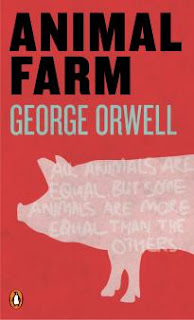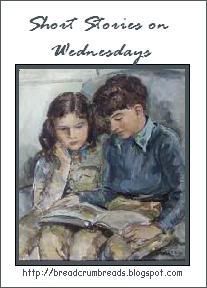All animals are equal,
but some are more equal than the others.
-
Animal Farm
If you've ever heard or read anything by or about George
Orwell, you know to expect a political subtext to his work. This book is
probably one of his most incisive political works. What makes this remarkable
is that all its principle characters are animals.
Manor Farm belongs to the harsh and irresponsible Mr Jones
who treats his farm animals very shoddily. The animals are used to bearing this
with mute resignation until one night; Old Major the boar calls a meeting and
shares his dream of a farm run by the animals themselves. He teaches the
animals ‘Beasts of England’, a song which is to become the anthem of the
revolution. When old Major dies, two pigs called Snowball and Napoleon take it
upon themselves to lead the revolution. The revolt happens quite organically
and much sooner than planned. The animals chase off Mr Jones, take control of
the farm and rename it Animal Farm. Almost instantly their lives are much
improved. Under the leadership of Snowball and Napoleon, the animals work hard
and the farm prospers. However, power starts to corrupt the pigs. The tranquility and comradeship of the animals is threatened and things start to
go rapidly downhill from there on. The ending was especially brilliant I
thought. Chilling and poignant.
Animal Farm is often, mistakenly touted as Orwell’s diatribe
against socialism but Orwell is really making a comment on dictatorship and not
on the people’s movement. Apparently Orwell intended this book to be
a specific attack at Stalin but really, it is just as relevant to any
dictatorship the world over. Orwell also takes pot-shots at organised religion
and its sedating effect on the masses. Moses, a Raven and Mr Jones’ pet, tells
the weary animals of a beautiful land called Sugarcandy Mountain where all
animals go after they die but only if they work very hard when they are alive
and never question their master.
I’d urge you to give this book a try even if politics doesn't interest you. This isn't some dry political treatise. There is a story
here that is engaging and thought-provoking irrespective of what your political
ideology may be.



